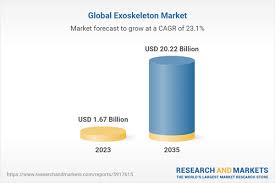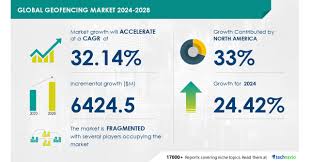Palo Alto Networks CEO: 'We Firmly Believe' Dramatic Shift In Growth Strategy Will Pay Off

CEO Nikesh Arora discloses that the company has decided to take a short-term hit to growth — including through increasing free product offers to customers — in order to accelerate consolidation on its unified cybersecurity platform over the longer term.

Palo Alto Networks disclosed a major shift in strategy Tuesday aimed at enabling accelerated consolidation onto its unified security platform, which executives said will hamper growth rates for at least a year but should yield a significant payoff over the longer term.
The short-term hit to growth will come from providing increased incentives to customers such as free product offers, which Palo Alto Networks executives believe are necessary for customers to adopt more tools on its platform at a faster pace, executives said Tuesday during the vendor’s quarterly call with analysts.
[Related: Palo Alto Networks CEO Nikesh Arora: ‘Disrupt Ourselves,’ Transform The Industry]
“One of the hardest things to do is to change a strategy that is working,” Palo Alto Networks CEO Nikesh Arora said during the call. However, “we firmly believe as a management team that the changes we're making today are going to give us better prospects in the mid-to-long term and allow us to drive this consolidation much faster.”
The disclosure came in connection with the cybersecurity giant’s latest quarterly financial results, which revealed lower guidance for billings and revenue as a result of the revamped investment and growth strategy. Palo Alto Networks’ stock price sank 20 percent in after-hours trading Tuesday to $291.38 a share.
The company expects it will need 12 to 18 months before its growth rate recovers, Arora said.
In part, the shift in strategy is a response to the realities that customers face while trying to move to a consolidated platform from dependence on numerous individual tools — a situation that often involves dealing with an assortment of vendors and contractual end dates, he said.
To circumvent these challenges, Palo Alto Networks plans to instead allow customers to use its products free of charge for a period of time until the customer’s contracts with its other security vendors run out, according to Arora.
“That's taking away a lot of the economic exposure and the execution risk for our customers,” he said. “Now, you can call it a discount or you can call that a free offer. Our estimate is approximately it works out about six months worth of free product capabilities to our customers.”
However, once these initial free periods expire, Palo Alto Networks should end up with a significantly larger base of customers using a far greater number of the vendor’s tools, leading to a much bigger overall business, executives said.
Beyond the initial ramp-up period of the strategy, “we expect we can sustain higher growth than we provided” previously, Palo Alto Networks CFO Dipak Golechha said during the call with analysts Tuesday.
Channel Opportunities
In response to an analyst’s question about how the new strategy will affect compensation for the channel, Arora said that he expects there will be major benefits for partners from this approach. Since the strategy is aimed squarely at increasing the total size of contracts with customers, “the channel has a lot of incentive to help us drive this platformization,” he said.
Additionally, usage of more tools on the Palo Alto Networks platform means more services opportunities, Arora said. “These platform offers actually spin out a lot more services revenue than individual, best-of-breed offers,” he said.
For the second quarter of Palo Alto Networks’ fiscal 2024, ended Jan. 31, the company reported revenue of $1.97 billion, up 19 percent from a year earlier.
In connection with Palo Alto Networks’ new growth strategy, the longer-term goal for the vendor’s business is now to reach $15 billion in annual recurring revenue by its fiscal 2030, Arora said.
Platform Approach
Under Arora, Palo Alto Networks has completed 16 acquisitions since his arrival in June 2018. The acquisitions have been key to the vendor’s efforts to assemble a comprehensive cybersecurity platform — expanding Palo Alto Networks from a network security vendor into a platform covering most of today’s essential cybersecurity capabilities.
The platform approach is at the heart of Palo Alto Networks’ growth strategy, and it’s resonating with both partners and customers, Arora told CRN in an interview last July. Increasingly, the industry’s focus is shifting to building “longer-term cybersecurity architectures to create this integrated platform, which gives a better outcome,” he said.
In addition to network security, the Palo Alto Networks platform spans protection for cloud and applications, to secure access service edge (SASE) and zero trust security, to AI-powered threat detection and security operations.


 Canada
Canada Argentina
Argentina  Australia
Australia  Austria
Austria  Brazil
Brazil  Germany
Germany  Ireland
Ireland  Italy
Italy  Malaysia
Malaysia  Mexico
Mexico  New Zealand
New Zealand  Poland
Poland  South Africa
South Africa  United Kingdom
United Kingdom  United States
United States 
























